Try to imagine what life was like for Emma after she married Joseph Smith. Even before she married Joseph, there was trouble and conflict. For example, Emma’s parents, Isaac and Elizabeth Hale, initially rejected Joseph, disapproving of his religious pursuits and his work for Josiah Stowell. Nevertheless, as young as Emma was when she married (though slightly older than Joseph), she loved Joseph and courageously followed her heart in spite of her parents’ disapproval.
In Doctrine and Covenants 25 we learn that the Lord identified Emma Smith as an “elect lady.” Hoyt W. Brewster Jr.’s Doctrine and Covenants Encyclopedia contains an interesting entry on the phrase “Elect Lady”:
The phrase elect lady was applied to Emma Smith by the Lord in July 1830 (D&C 25:3). President Gordon B. Hinckley said this meant “she was a ‘chosen vessel of the Lord’” (En., Nov. 1984, p. 91; see Moro. 7:31). This was at a time when Emma was in complete harmony with the Spirit, for her sins had been forgiven.
This title is also used by the Apostle John in an epistle that appears to be addressed to his wife and family (2 John 1:1, 13). “An elect lady is a female member of the Church who has already received, or who through obedience is qualified to receive, the fulness of gospel blessings. This includes temple endowments, celestial marriage and the fullness of the sealing power. She is one who has been elected or chosen by faithfulness as a daughter of God in this life, an heir of God, a member of his household. Her position is comparable to that of the elders who magnify their callings in the priesthood and thereby receive all that the Father hath (D&C 84:38) ….
Just as it is possible for the very elect to be deceived, and to fall from grace through disobedience, so an elect lady, by failing to endure to the end, can lose her chosen status.” (Bruce R. McConkie, Mormon Doctrine, 217.)
In a more specific sense, President John Taylor said that Emma’s title of elect lady “means that she was called to a certain work…. She was elected to preside over the Relief Society.” (JD, 21:367.) This is consistent with the Prophet Joseph’s comment that “the elect meant to be elected to a certain work.” He said Emm’s “election to the Presidency of the Society” was a fulfillment of revelation (HC 4:552-53) See also: Smith, Emma (p. 148)
I might quibble with a few assertions in this entry - for example, I disagree with McConkie that “it is possible for the very elect to be deceived,” I think that is a misinterpretation of the Lord’s meaning in Joseph Smith-Matthew 1:22, Matthew 24:24, and Mark 13:22, and I also think that it is presumptuous to announce when Emma was in complete harmony with the Spirit and when she was not - but the entry is useful for beginning to think about what the Lord meant by calling Emma Smith an “elect lady.” Let’s take a closer look at this phrase in the context of the beginning of the Lord’s revelation to Emma Smith:
Hearken unto the voice of the Lord your God, while I speak unto you, Emma Smith, my daughter; for verily I say unto you, all those who receive my gospel are sons and daughters in my kingdom.
A revelation I give unto you concerning my will; and if thou art faithful and walk in the paths of virtue before me, I will preserve thy life, and thou shalt receive an inheritance in Zion.
Behold, thy sins are forgiven thee, and thou art an elect lady, whom I have called. (D&C 25:1-3)
We can read these verses with hope because later in this same revelation we learn that the voice of the Lord to Emma is the voice of the Lord unto us as well. The promises of the Lord to Emma apply also to each one of us in proportion to our faithfulness and obedience. We too can receive the Gospel of Jesus Christ, become sons and daughters in the kingdom of God, be faithful, and walk in the paths of virtue before the Lord. We too can receive the blessings that Emma received, including:
The preservation of our lives
An inheritance in Zion
Forgiveness of sins
The phrase “elect lady” means “one chosen or set apart,” as demonstrated in the second Book of John in the New Testament:
The elder unto the elect lady and her children, whom I love in the truth; and not I only, but also all they that have known the truth;
The children of thy elect sister greet thee. Amen. (2 Jn. 1:1 (1, 13))
Imagine what it must have been like for Emma Smith to gradually learn that her husband was not only a prophet, but the great Prophet and Seer of the last days as prophesied in scripture. She may have wondered: “Then what am I? A bump on a log?” Far from it. Like her great husband Joseph the Prophet, Emma was chosen by the Lord and set apart for a special work. In fact, I propose that Emma’s work was the most crucial work in the early Restoration. She loved, cared for, and faithfully assisted the man through whom the greatest revelations of the Lord were ever given. Emma’s role wasn’t just essential or crucial or vital, it was urgent and indispensable.
I feel that there is something special about Emma Hale Smith, and I want to learn more about her. It seems to me that even for most members of the Church, this elect lady, Emma Hale Smith, unfortunately remains almost as enigmatic as Shakespeare’s Dark Lady.
The Prophet’s mother, Lucy Mack Smith, once praised Emma as follows:
“I have never seen a woman in my life, who would endure every species of fatigue and hardship, from month to month, and from year to year, with that unflinching courage, zeal, and patience, which she has always done. ... She has been tossed upon the ocean of uncertainty; ... She has breasted the storms of persecution, and buffeted the rage of men and devils, ... which have borne down almost any other woman.”1
What was the Lord’s counsel to Emma Smith and what did the He call her to do?
Murmur not because of the things which thou hast not seen, for they are withheld from thee and from the world, which is wisdom in me in a time to come.
And the office of thy calling shall be for a comfort unto my servant, Joseph Smith, Jun., thy husband, in his afflictions, with consoling words, in the spirit of meekness.
And thou shalt go with him at the time of his going, and be unto him for a scribe, while there is no one to be a scribe for him, that I may send my servant, Oliver Cowdery, whithersoever I will.
And thou shalt be ordained under his hand to expound scriptures, and to exhort the church, according as it shall be given thee by my Spirit.
For he shall lay his hands upon thee, and thou shalt receive the Holy Ghost, and thy time shall be given to writing, and to learning much.
And thou needest not fear, for thy husband shall support thee in the church; for unto them is his calling, that all things might be revealed unto them, whatsoever I will, according to their faith.
And verily I say unto thee that thou shalt lay aside the things of this world, and seek for the things of a better.
And it shall be given thee, also, to make a selection of sacred hymns, as it shall be given thee, which is pleasing unto me, to be had in my church.
For my soul delighteth in the song of the heart; yea, the song of the righteous is a prayer unto me, and it shall be answered with a blessing upon their heads. (D&C 25:4-12)
This is a marvelous revelation to Emma and to us.
Emma Smith was called to aid and comfort her husband, to write and expound scriptures, and to select hymns for the Church. When I read this revelation to Emma, I am reminded of the Lord’s loving instructions to Mary and Martha:
Now it came to pass, as they went, that he entered into a certain village: and a certain woman named Martha received him into her house.
And she had a sister called Mary, which also sat at Jesus’ feet, and heard his word.
But Martha was cumbered about much serving, and came to him, and said, Lord, dost thou not care that my sister hath left me to serve alone? bid her therefore that she help me.
And Jesus answered and said unto her, Martha, Martha, thou art careful and troubled about many things:
But one thing is needful: and Mary hath chosen that good part, which shall not be taken away from her. (Luke 10:38-42)
Emma also chose that good part, which shall not be taken away from her. In my opinion there is a parallel between Joseph Smith’s relationship with Emma and the Lord’s relationship with Mary Magdalene. This is a topic to explore in connection with my study of the dynasty of the Holy Grail, the Gnostic Gospels, and so forth.
The Lord comforted, consoled, and encouraged Emma, and He instructed her concerning the best use of her time, namely in her duties as a wife and in writing and learning much through the Holy Ghost. What a contrast when compared to what the world teaches women to do! No wonder the Lord commanded Emma (and us) to “lay aside the things of this world,” and to “seek for the things of a better.” What things of the world might we lay aside in order to seek for the things of a better world? (see also Matthew 6:19, 21, 25–34; Luke 10:39–42; 2 Nephi 9:51).
This last commandment reminds me of (and seems to be drawn directly from) the great promise that Moroni inserted into his account of the last Jaredite prophet Ether:
Wherefore, whoso believeth in God might with surety hope for a better world, yea, even a place at the right hand of God, which hope cometh of faith, maketh an anchor to the souls of men, which would make them sure and steadfast, always abounding in good works, being led to glorify God. (Ether 12:4)
By obeying the Lord’s commandment to lay aside the things of this world and to seek for the things of a better world, Emma Smith was led to glorify God, even in song. Emma Smith was led to magnify the Lord like Mary, the mother of our Lord, whose praise was later transformed into one of the earliest hymns of the Christian Church:
And Mary said, My soul doth magnify the Lord,
And my spirit hath rejoiced in God my Saviour.
For he hath regarded the low estate of his handmaiden: for, behold, from henceforth all generations shall call me blessed.
For he that is mighty hath done to me great things; and holy is his name.
And his mercy is on them that fear him from generation to generation.
He hath shewed strength with his arm; he hath scattered the proud in the imagination of their hearts.
He hath put down the mighty from their seats, and exalted them of low degree.
He hath filled the hungry with good things; and the rich he hath sent empty away.
He hath holpen his servant Israel, in remembrance of his mercy;
As he spake to our fathers, to Abraham, and to his seed for ever. (Luke 1:46-55)
Just as the original Church of Jesus Christ worshiped God through the singing of hymns, the Lord’s Restored Church required a selection of sacred hymns, which Emma was inspired to initiate, which pleased the Lord and called forth His blessings. It’s worth repeating how the Lord feels about sincere praise through the singing of hymns:
For my soul delighteth in the song of the heart; yea, the song of the righteous is a prayer unto me, and it shall be answered with a blessing upon their heads. (D&C 25:4-12)
What are some of your favorite songs of the heart, songs of the righteous, or hymns?
It is important to remember that in addition to her support of her husband and her faithful fulfillment of her duties as an elect lady, Emma Smith bore nine children and adopted two others, four of whom died at birth or shortly thereafter, and two who died as toddlers. The grief of such losses, combined with poverty and the constant barrages of persecution and other trials and tribulations, is almost unimaginable.
Emma was with Joseph when he first received the plates from the Angel Moroni. Evidence from witness statements suggests that Emma was also the first scribe of the Book of Mormon:
“I frequently wrote day after day,” she later recalled, “often sitting at the table close by him, he sitting with his face buried in his hat, with the stone in it, and dictating hour after hour with nothing between us. … He had neither manuscript nor book to read from. … If he had had anything of the kind he could not have concealed it from me. … The plates often lay on the table without any attempt at concealment, wrapped in a small linen table cloth. … I once felt of the plates, as they thus lay on the table, tracing their outline and shape.” (Revelations in Context, “Thou Art an Elect Lady”)
In the same article, Church historian Matthew J. Grow observed:
Whatever Emma’s hopes for her married life were, she could hardly have anticipated the degree to which opponents of the new church would physically intimidate and legally harass the Smiths or the way the demands of preaching and Church administration would take her husband away from their farm and family, disrupting their home life and threatening their livelihood.
In the context of these anxieties and disappointments, Joseph received a revelation for Emma, Doctrine and Covenants 25, which reiterated, “Verily I say unto thee that thou shalt lay aside the things of this world & seek for the things of a better.” Through the revelation, Emma received words of consolation and instruction. She was told, “Murmur not because of the things which thou hast not seen for they are withheld from thee & the World”—perhaps a reference to the golden plates, which Emma later recalled she had handled on one occasion but not seen. The revelation called Emma “an elect lady” and told her that the “office of thy calling shall be for a comfort unto my Servant Joseph thy husband in his afflictions with consoleing words in the spirit of meekness.” The revelation also spoke of Emma’s work in the Church, promising that she would be “ordained” by her husband “to expound Scriptures & exhort the Church.”14 Furthermore, Emma was instructed to serve as a scribe to her husband and to compile a hymnal. Joseph Smith later explained that Emma “was ordain’d at the time, the Revelation was given, to expound the scriptures to all; and to teach the female part of community; and that not she alone, but others, may attain to the same blessings.”15
Emma particularly treasured the revelation addressed to her. With the assistance of William W. Phelps, she followed the Lord’s instructions to compile the Church’s first hymnal.20 In 1842, Joseph Smith read the revelation to Emma at the organizational meeting of the Relief Society. He also read 2 John 1, which references the “elect lady,” and explained that she was “called an Elect lady” because she was “elected to preside.”21 Joseph stated that “the revelation was then fulfilled by Sister Emma’s Election to the Presidency of the Society.”22
The revelation regarding Emma Smith, received during the tumultuous summer months of 1830, was invoked and discussed in Relief Society meetings throughout the 19th century. For example, at a jubilee celebration of the Relief Society’s 50th anniversary in 1892 held in the Salt Lake Tabernacle, “Zina Y. W. Card … read in a very clear and distinct voice the Revelation given to Emma Smith, through Joseph the Seer … wherein Sister Emma is called an Elect Lady.”23 Early Relief Society general presidents were sometimes called “Elect Lady.” For instance, when Zina D. H. Young became Relief Society general president, Emmeline B. Wells (who herself later served as Relief Society general president) wrote to her, “I congratulate you my beloved sister on being called, to be, according to the words of Joseph the Prophet, ‘The Elect Lady.’”24
The Lord’s revelation to Emma Smith concludes:
Wherefore, lift up thy heart and rejoice, and cleave unto the covenants which thou hast made.
Continue in the spirit of meekness, and beware of pride. Let thy soul delight in thy husband, and the glory which shall come upon him.
Keep my commandments continually, and a crown of righteousness thou shalt receive. And except thou do this, where I am you cannot come.
And verily, verily, I say unto you, that this is my voice unto all. Amen. (D&C 25:13-16)





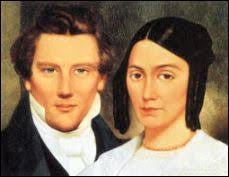
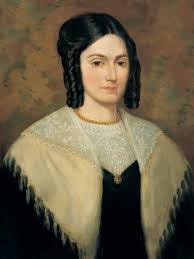
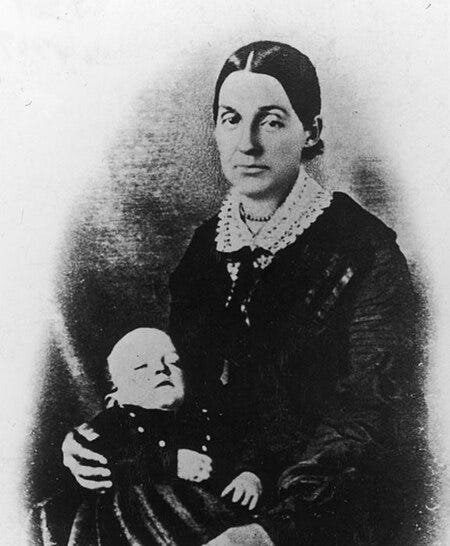
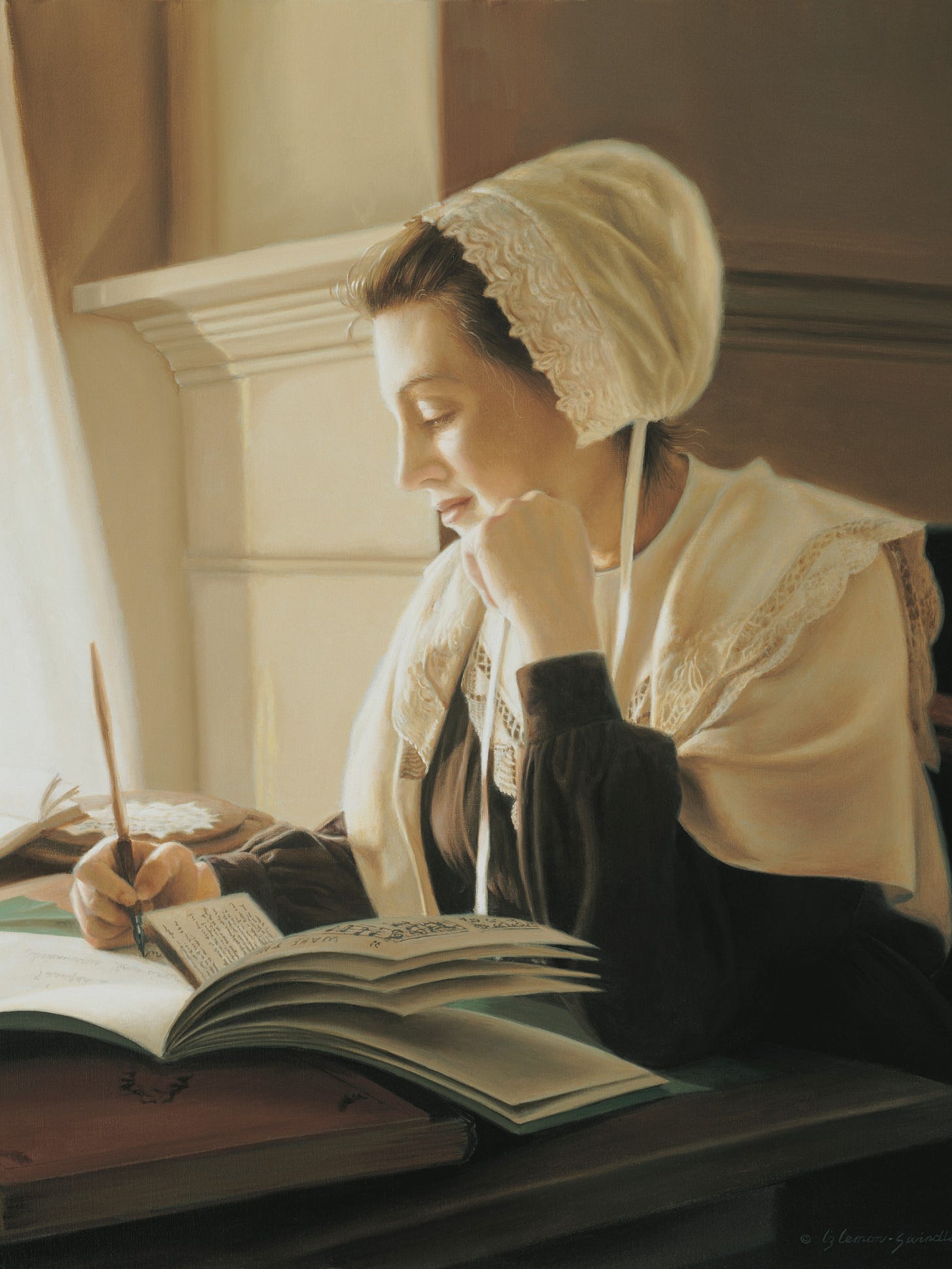
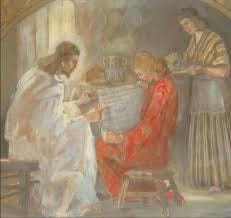
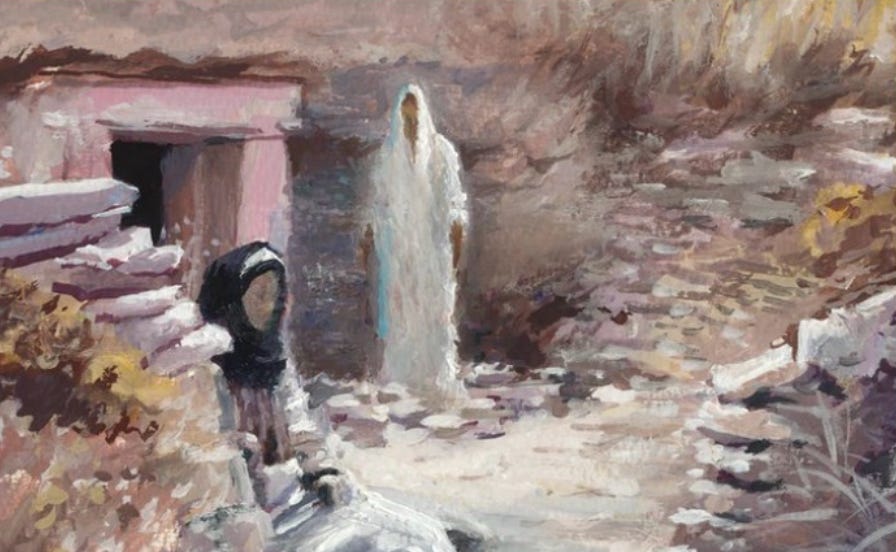


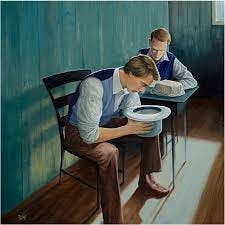
Whatever people have to say about Emma, they should read the last 12 words of her patriarchal blessing. :)